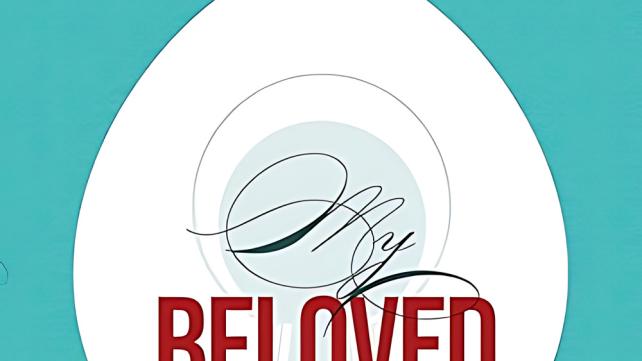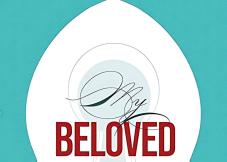
If you would like to commit to a daily practice this Ramadan that will help you reflect deeply on your habits, take concrete steps toward self-improvement and grow closer to Allah, then you should consider reading My Beloved: A series of reflections on the Names and Attributes of Allah in everyday life.
This ebook, available only on Kindle, was written by Amaney Kazlak with contributions from authors Gulmakai Saleh, Nawal Alam, Wendy Díaz, and Weaam Ali. My Beloved combines touching real-life stories, in-depth explanations of Allah’s Names and Attributes, and prompts that encourage readers to take mindful, meaningful action every day.
In her introduction, Kazlak writes:
“We cannot love someone we do not know. And while human love cannot be compared to loving Allah, (swt) knowing Allah (swt) leads to loving Allah (swt). The more we learn about Allah (swt), the closer we get to Him and the sooner our relationship with Him will develop; and the longer that relationship, the stronger the bond will become.”1
In order to help us strengthen that bond, Kazlak discusses each of Allah’s names in-depth, sometimes combining similar names in a chapter. At the end of each chapter, she offers two sections entitled “self-reflection” and “I want to soar.” These prompts encourage the readers to apply what they’ve read by thinking deeply and then planning concrete actions. After discussing the qualities of Al-Wahhab, for instance, the author asks readers to self-reflect on whether they might have overlooked any small gifts from Allah and ask themselves whether they have thanked Him for their blessings. Then, in “I want to soar,” she advises readers to “be a source of a blessing in someone else’s life” by buying them an unexpected gift or making them their favorite dish.2
In Part 1 of her book, Kazlak covers nine Names of Allah: Al-Wahhab, Al-Kareem, Al-Akram, Al-Ghafour, Al-Ghafir, Al-Ghaffar, Al-Barr, Al-Muhsin, and Ar-Rabb.
Before writing about Al-Wahhab, the Perpetual Giver of Gifts, Kazlak shares a fond childhood memory of her grandmother baking feteer, her favorite flaky, buttery Egyptian bread. This story of her grandparent’s thoughtfulness reminds her of how incomparably generous Allah is. Kazlak writes, “Sometimes He grants us the gift after we’ve asked Him just one time, and sometimes after years of asking. However, He always – whether we believe it or not– always gives us the gift at the time that is not only good for us, but at the time that is best for us.”3
Keeping that in mind, Kazlak poses this question: “If Allah (swt) is Al-Wahhab, the Perpetual Giver of gifts, and He loves to be asked and He loves to give, why are we not asking of Him more?”4
In discussing Allah’s names Al-Kareem, the Generous, and Al-Akram, the Most Generous, Kazlak writes about her grandmother making the sweet pastry katayef to share with others during Ramadan. As generous as some humans are, Allah is the Most Generous. Kazlak points out that Allah gives us gifts we didn’t even ask for. He loves to give and He will always answer our dua.5
To introduce the chapter on Al-Ghafoor (The All-Forgiving), Al-Ghafir (The Forgiver), and Al-Ghaffar (The Perpetual Forgiver), author Wendy Díaz reflects on an experience she had in eighth grade before she was a Muslim or knew anything about Islam. She used to join in as classmates teased a Muslim student named Labeeb. Labeeb was forgiving and kind. He didn’t get angry or hold grudges. He smiled and laughed along at the kids’ jokes about his father and him. Now, Díaz writes that she deeply regrets her immature behavior and makes dua or prayer that Labeeb is living his life as a proud Muslim despite the adversities he faced.
Díaz offers suggestions for obtaining Allah’s forgiveness, such as:
- Reciting the istighfar (seeking God’s forgiveness) with understanding
- Repenting by practicing tawbah (making a sincere attempt to stop sinning, increasing our good deeds, distancing ourselves from that which made us sin, and forgiving others so that Allah will forgive us)
- Making dua using his names Al Ghafoor, Al-Gafir, Al-Ghaffar
- Increasing good deeds
- Being good to Allah’s creations
- Forgiving others
- Forgiving ourselves
In her chapter about Al-Barr, The Doer of Goodness, Kazak discusses the importance of a pure heart by describing the story of a young girl with remarkable integrity who made a good decision despite peer pressure. Kazak reminds us that “everything in existence benefits from Allah’s generosity and goodness. He is both merciful and generous, rewarding the least of our good deeds with a tenfold reward.”6 She encourages readers to make some small good deeds into habits that will be a source of goodness in this life and the next.
Author Gulmakai Saleh writes about how Al-Muhsin, the Giver of Good, guided her to love her faith despite a lack of access to Islamic information and a strict background that depicted Allah as harsh. In the “I want to soar” section, readers are encouraged to try to do acts of goodness without conditions or expectations.
Author Nawal Nadeem Alam begins her discussion of Ar-Rabb, the One Who Nurtures, by writing about her own mother, who instilled in her daughter a love of salat and Quran with a nurturing, gentle, positive approach. Alam reminds us, “It is Ar-Rabb who nurtures and develops His servants – intellectually, emotionally, and spiritually– through each and every stage of their lives.”7 She encourages us to focus, when we pray each day, on the verse from Surah Al-Fathiha
“Alhamdullilahi Rabbil ‘alameen''
remembering that “He is not only the Rabb of the entire existence – of the known and unknown – but He is also the caretaker of everything in existence.” She writes, “Feel the magnanimity of your Rabb through your mind, body, and soul.”8
There is much more to Part 1 that you can discover for yourself. InshaAllah, next week I will discuss some of the lessons gleaned from Part 2.
End Notes
1 My Beloved, p. 21-22
2 p. 32
3 p. 30
4 ibid
5 p. 37
6 p. 56
7 p. 70
8 p. 72
CURRENT Laura El Alam is a freelance writer and editor and the author of the book Made From the Same Dough, as well as over 100 published articles. A wife and mother of five, Laura lives with her family in Massachusetts. You can visit her online at www.seaglasswritingandediting.com.






Add new comment